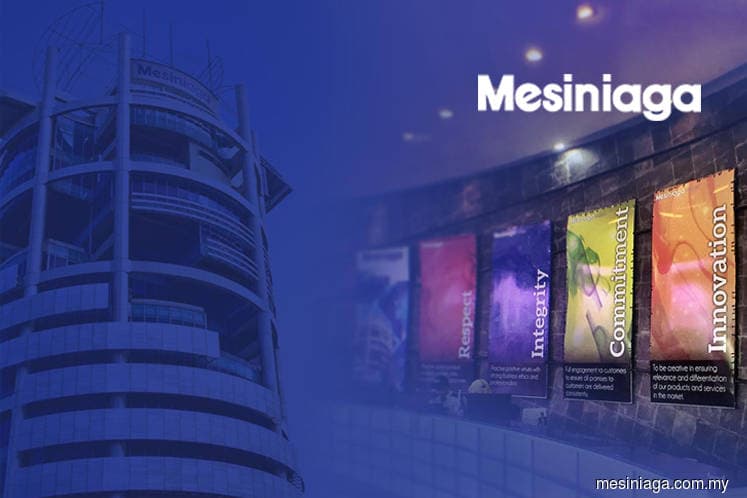
This article first appeared in The Edge Malaysia Weekly on January 28, 2019 - February 3, 2019
THERE was frenzied buying of Mesiniaga Bhd shares following news that the company had secured a contract worth RM1.9 billion to manage a submarine cable that will be built to connect Hong Kong and Malaysia.
The stock hit RM1.75 last Wednesday — the highest level since August 2014. For the week, it soared 54 sen or 46.55% to RM1.70 after the award of the Enhancing Malaysia International Internet Gateway (EM-IIG) contract was announced.
Mesiniaga tells The Edge that the contract is for the supply and implementation of core, aggregation and access network equipment as well as its support system.
“The equipment will be used to connect the main network with the international gateway and provide internet service to the Malaysian public,” it says.
However, in an unexpected twist, Deputy Prime Minister Datuk Seri Dr Wan Azizah Wan Ismail later issued a statement saying that the government did not commit to anything relating to EM-IIG, which is undertaken by a private company, Xiddig Cellular Communications Sdn Bhd. The firm is controlled by executive chairman Datuk Seri Abdul Rashid Abdul Rahim, who is the brother of former Lembaga Tabung Haji chairman Datuk Seri Abdul Azeez Abdul Rahim.
This has raised concerns over the viability of the project.
Xiddig, a little-known company, has welcomed the publicity. “It’s a blessing in disguise,” says Abdul Rashid. “[The recent news] gives a good message to the country that we are coming, we are ready.”
The EM-IIG is a high-speed broadband project boasting 7,500km of the “world’s fastest” 150TB undersea cable connecting Hong Kong and Malaysia, and 110,000km of land cables plus five cable landing stations nationwide, which will cost a whopping RM5.4 billion in total.
The project, which was first reported in 2017, is solely owned by Xiddig — which, until recently, was mainly involved in the provision of mobile virtual network services.
Sole ownership of undersea cable projects is uncommon. Even the likes of Telekom Malaysia Bhd — which has a couple of such projects — has worked with others as a consortium to undertake such mammoth tasks.
Others, like TIME dotCom Bhd, hold strategic stakes in international submarine cable systems while owning their own cable landing stations.
What really caught public attention in the case of Xiddig, however, was what transpired at the official launch of the project last week.
At the event, former Penang deputy chief minister Datuk Rashid Hasnon was reported to have read out a speech to officiate the event — meant to be delivered by Wan Azizah — which underlined the government’s commitment to the project.
To that, Abdul Rashid remarked that the issue is being politicised.
According to him, based on official communications, key members of the government, including Wan Azizah and Communications and Multimedia Minister Gobind Singh Deo, were “very supportive” of the venture previously.
Others, like Finance Minister Lim Guan Eng, are also aware of the project as Xiddig has been holding roadshows on the project in all states over the past few years, he says.
“We gave a presentation to the MCMC (Malaysian Communications and Multimedia Commission),” Abdul Rashid says, adding that it was very helpful and granted Xiddig a submarine cable landing licence.
“None of us are politicians ... we are 100% business people.”
He says EM-IIG is fully private sector-driven, the necessary funding has been secured and it has found reputable partners to execute the project.
Xiddig, according to Abdul Rashid, has entered into contracts with integrated turnkey submarine network solutions provider Alcatel Submarine Networks for the provision and laying of the undersea cables. Work is expected to start in three months’ time.
US-based CommScope Inc will provide the land cables while Mesiniaga will manage the system when it comes onstream before the end of the year.
On Mesiniaga, Abdul Rashid says the company was chosen partly because of its track record as a vendor for other telecommunications companies. “Other bids in the open tenders, including by several overseas players, were too expensive.”
But with cash equivalents of RM31.05 million as at its latest quarter, does Mesiniaga have the capacity to take on the project?
“Xiddig’s payments will be made progressively over 24 months, in accordance with the terms of the contract,” he says.
Hence, comes the question of funding, considering the size of the project, the apparent tie-up with prominent names in the industry and Xiddig’s lack of a track record in carrying out such a huge venture.
Abdul Rashid notes that Xiddig has already raised the funds for the entire project by selling preference shares in a special purpose vehicle, Xiddig Technology.
Details, however, were not shared. “We have signed a non-disclosure agreement with [the funders],” he says.
Meanwhile, Xiddig also needs to sort out other issues, such as getting the right of way to land for its land cable network and, more importantly, securing off-takers for the additional capacity from the project.
The big plan is to provide fibre-to-the-home services under the Xiddig brand and sell the capacity to corporations and other telcos, says Abdul Rashid.
None of this has materialised yet, but Xiddig says local telco tower owners have already inked letters of intent with it to buy data when the project comes onstream.
“This is a revenue-generating project for the country. It can also improve the internet speed for Malaysians,” says Abdul Rashid. “Sometimes, we feel sad that the [issues that cropped up following the project launch] were blown out of proportion.”
Save by subscribing to us for your print and/or digital copy.
P/S: The Edge is also available on Apple's AppStore and Androids' Google Play.